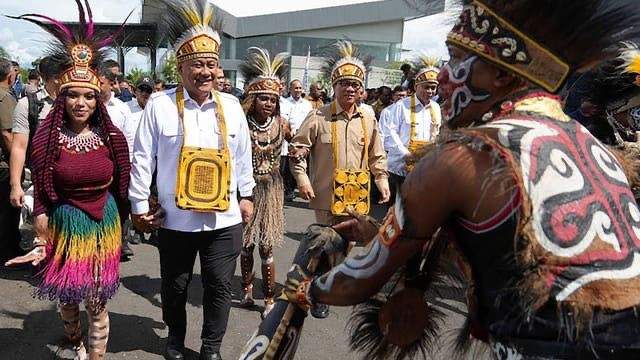Papua — In the remote areas of Papua, where terrain and infrastructure often pose major challenges, the Free Nutritious Meal Program (MBG) brings a glimmer of hope. Through the commitment of the National Nutrition Agency (BGN), the support of community leaders, and tangible benefits for students and pregnant women, MBG strives to ensure that the young generation in Papua is not left behind in accessing proper nutrition.
BGN has designated Papua as a priority region for the implementation of MBG, especially in the 3T areas (frontier, outermost, and remote regions). During his working visit to Nabire, Central Papua Province, BGN Head Dadan Hindayana emphasized the need to accelerate the establishment of MBG kitchens in these regions.
As of August 2025, a total of 101 Nutrition Fulfillment Service Units (SPPG) have been operating across Papua out of the targeted 414 units. This means that only about 25 percent are currently functional.
“In Papua, there are already 101 of the 414 SPPG units that should exist — so it’s about 25 percent. However, they still haven’t reached the most remote areas,” said BGN Head Dadan Hindayana.
BGN acknowledges that many regions in Papua have yet to receive MBG services due to a lack of implementing partners and limited infrastructure.
“It’s rare to find partners willing to work in Papua,” Dadan Hindayana admitted while outlining the challenges of implementing MBG in the region.
Beyond infrastructure and service development, BGN is also promoting a persuasive approach through open dialogue with traditional, religious, and community leaders. These dialogues are vital to ensure that the MBG program is well-received and aligned with local values and cultures.
In his discussion with regional governments and stakeholders in Central Papua, Dadan emphasized that the MBG menu should be based on local food sources to ensure sustainability.
“We want to create menus that reflect local resource potential. Through this program, we also hope to empower local farmers, fishers, and livestock breeders,” he stated.
Cultural sensitivity is also taken into account: local food ingredients and traditional dishes are incorporated to encourage children to enjoy the meals and help communities feel that the program truly belongs to them.

